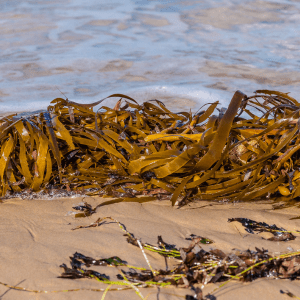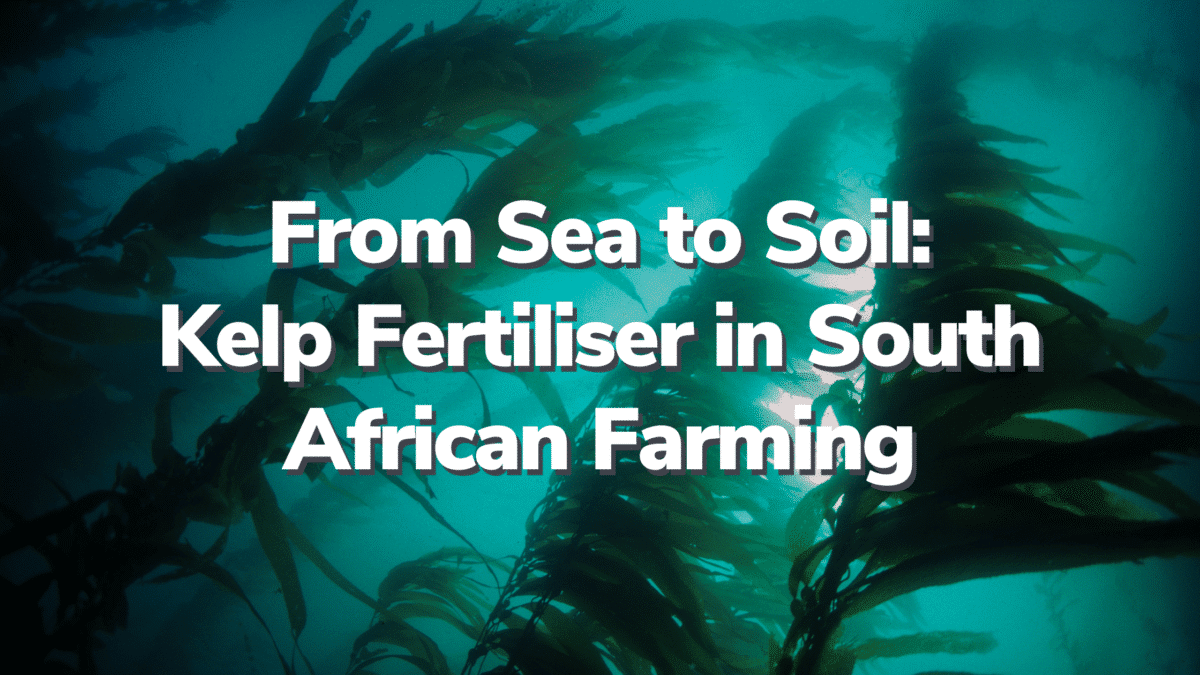With global concerns over the environmental impact of chemical fertilisers mounting, farmers and researchers are turning towards alternative solutions rooted in nature. One such solution gaining traction is kelp, a marine plant with a long history of use in various cultures around the world. Kelp fertiliser shows promise and potential in South Africa and around the world.
The cons of chemical fertilisers
Once hailed for their ability to rapidly supply nutrients to crops, chemical fertilisers have now come under scrutiny for their detrimental effects on soil health and the environment. Excessive use of synthetic fertilisers can disrupt soil ecosystems, leading to decreased biodiversity and soil degradation. Never mind that the production of synthetic inputs is energy-intensive, reliant on non-renewable resources, and contributes to environmental pollution.
Enter kelp: the green solution
Historically used for medicinal purposes, food and agriculture, kelp and seaweed offer numerous benefits for soil health and crop productivity. Kelp, a type of seaweed, stands out for its rich nutrient profile. It contains essential elements like potassium, phosphorus, iron, and nitrogen. When used as a fertiliser, kelp not only provides nutrients but also enhances soil structure, promotes microbial activity, and increases nutrient availability.

What’s the difference between kelp and seaweed?
Kelp and seaweed are often used interchangeably in casual conversation, but they actually refer to different types of marine algae. Seaweed is a broad term that encompasses various types of marine algae, including kelp.
Seaweed can be classified into three main groups based on their pigmentation:
- Green algae (Chlorophyta)
- Brown algae (Phaeophyceae)
- Red algae (Rhodophyta).
These algae come in diverse shapes, sizes, and colours and can be found in oceans, seas, and freshwater environments worldwide.
Kelp, on the other hand, specifically refers to a type of large brown algae belonging to the order Laminariales. Kelp is characterised by its large size, complex structure, and prominent holdfasts anchoring it to rocky substrates on the seabed.
Did you know? Seaweed has a rich history of use in human civilization: In ancient China, seaweed was used for medicinal purposes and as a food source. Ancient Romans used seaweed to fertilise their cropsVikings used seaweed as a fertiliser and as a food source during long voyages. Archaeological evidence shows that seaweed has been consumed for at least 10,000 years in Japan. |
The efficacy of kelp: evidence from studies
With its wide range of micronutrients and minerals, kelp can:
- Improve soil structure
- Promote microbial activity
- Increase water retention
- Enhance nutrient availability
Numerous studies have underscored the efficacy of seaweed-based fertilisers in enhancing crop yields and improving plant health.
- Research published in the journal Scientia Horticulturae demonstrated significant increases in cucumber and strawberry yields following treatment with kelp extract
- Studies on tomato and lettuce plants revealed larger fruit size, higher nutrient content, and improved growth after the application of kelp meal and extracts.
- Portieria hornemannii seaweed fertiliser (PSF), particularly at a concentration of 30%, has been shown to significantly enhance seed germination, plant growth, pigment concentration, biochemical parameters, grain yield, and nutrient uptake in Vigna radiata plants
These findings highlight the potential of seaweed as a low-cost, environmentally safe fertiliser alternative.
Seaweed is a sustainable choice
Beyond its efficacy in agriculture, seaweed offers environmental benefits that align with sustainable farming practices:
- Harvesting seaweed is renewable and poses minimal environmental impact compared to the extraction of non-renewable resources for synthetic fertilisers
- Seaweed cultivation can help mitigate oceanic nutrient imbalances and support marine ecosystems
- Seaweed-based fertilisers help farmers promote soil health, reduce environmental degradation, and foster sustainable agricultural practices
The future of kelp in South African agriculture
As we navigate the challenges of feeding a growing global population while preserving natural resources, seaweed offers a compelling alternative to chemical fertilisers with its rich nutrient content, soil-conditioning properties, and minimal environmental footprint. Backed by scientific evidence (and historical precedent), seaweed-based fertilisers hold immense promise for promoting soil health, increasing crop yields, and fostering environmental sustainability in agriculture.
Research and development efforts are underway to optimize seaweed cultivation techniques, refine fertiliser formulations, and scale production to meet agricultural demands. By leveraging advancements in seaweed biotechnology and refining refinery processes, we can unlock the full potential of this oceanic resource.
Get in touch with the Zylem team if you’re interested in exploring the benefits of liquid kelp hydrolysate for your farming needs.

About the Author: Alex Platt
Alex is Business Development Manager at Zylem. He’s inspired by the potential of regenerative farming and takes a special interest in the technology and products that are moving agriculture in a more sustainable direction.

